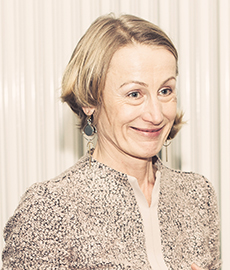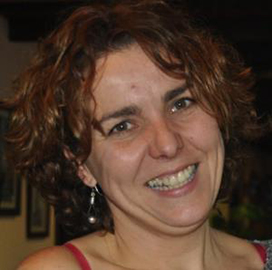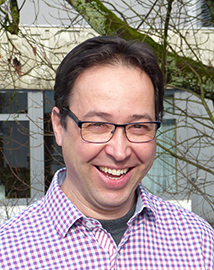IMS Vice-President Candidates for 2019-2021 (Review CV’s and Choose ONE)
Mari Moora
University of Tartu, Department of Botany,
Institute of Ecology and Earth Sciences, Tartu, Estonia

Mari Moora CV and Interests
University of Tartu, Department of Botany, Institute of Ecology and Earth Sciences, 40 Lai Str., 51005 Tartu, Estonia,
Researcher ID: https://publons.com/researcher/1641022/mari-moora/;
ORCID: https://orcid.org/0000-0002-4819-7506
Main domain of research
I am a community ecologist who explores the mechanisms underlying the diversity and composition of plant and mycorrhizal fungal communities, their co-variation across environmental gradients and importance in ecosystem processes from local to global scale. Much of my research has been field based, including environmental DNA based approaches in various terrestrial ecosystems mainly in Estonia, but also in Europe and elsewhere. In recent years, I have also focused on the variation of importance of mycorrhizal symbiosis across environmental scales combining data of plant species distribution with plants’ mycorrhizal traits (mycorrhizal type and status).
Education & employment
Graduated in biology (genetics), University of Tartu, 1989; Researcher at the Estonian Agricultural Biocentre, 1989-1992; Research assistant at the Department of Botany and Ecology, University of Tartu, 1992-1998; Ph.D in plant ecology. University of Tartu, 1998; Postdoc at the Division of General Microbiology, Viiki Biocentre, Helsinki University, 2000; Researcher (1998–2003) and Senior Researcher (since 2003) at the Department of Botany and Ecology, University of Tartu; Vice dean for research and development, Faculty of Science and Technology, University of Tartu, since 2017.
Scientific recognition
H-index: 34 (WoS), 43 (Google Scholar); Included in 1% of most cited researchers under two categories (Environment/Ecology; Plant and Animal Sciences, ISI Essential Science Indicators). Highly Cited Researcher in the field of Cross-Field-2018 (Clarivate Analytics).
Selected publications:
Hempel, S., Götzenberger, L., Kühn, I., Michalski, G.S., Rillig, C.M., Zobel, M., Moora, M. (2013). Mycorrhizas in the Central European flora – relationships with plant life history traits and ecology. Ecology, 94, 1389−1399.
Moora, M. (2014). Mycorrhizal traits and plant communities: perspectives for integration. Journal of Vegetation Science, 25, 1126−1132.
Willerslev*, E.; Davison*, J.; Moora*, M.; Zobel*, M.; Coissac*, E.; Edwards*, M.E.; Lorenzen*, E.D.; Vestergard*, M.; Gussarova*, G.; Haile*, … Brochmann*, C.; Taberlet*, P. (2014). Fifty thousand years of Arctic vegetation and megafaunal diet. Nature, 506, 47 – 51. *contributed equally to this work.
Davison*, J.; Moora*, M.; Öpik*, M.; … Zobel*, M. (2015). Global assessment of arbuscular mycorrhizal fungus diversity reveals very low endemism. Science, 349, 970 – 973. *contributed equally to this work.
Bueno, C.G.; Moora, M.; Gerz, M.; Davison, J.; Öpik, M.; Pärtel, M.; Helm, A.; Ronk, A.; Kühn, I.; Zobel, Z. (2017). Plant mycorrhizal status, but not type, shifts with latitude and elevation in Europe. Global Ecology and Biogeography, 26, 690−699.
Gerz, M.; Bueno, C. G.; Ozinga, W. A.; Zobel, M.; Moora, M. (2018). Niche differentiation and expansion of plant species are associated with mycorrhizal symbiosis. Journal of Ecology, 106, 254-264.
Zobel, M.; Davison, J.; Edwards, M.E.; Brochmann, C.; Coissac, E.; Taberlet, P.; Willerslev, E.; Moora, M. (2018). Ancient environmental DNA reveals shifts in dominant mutualisms during the late Quaternary. Nature Communications, 9, 139.
Maria Pozo
Scientific Researcher
Estación Experimental del Zaidi,CSIC, Granada, Spain

Maria Pozo CV and Interests
Short CV
María J. Pozo started her research career in pioneer labs in the field of beneficial microbes and plant protection. She did her PhD thesis in the frame of the EU funded project under the supervision of Prof. JM Barea and C. Azcón-Aguilar at the CSIC in Granada, on the mechanisms of bioprotection by arbuscular mycorrhizas (AM) against root pathogens. The group of Mycorrhiza at the EEZ-CSIC in Granada, established by Prof. J.M. Barea more than 40 years ago was one of the pioneers on mycorrhiza in Europe with large experience on ecology, physiology, biochemistry, molecular biology and biotechnological applications of mycorrhizas. Then, she continued her scientific training in Functional Genomics and Biocontrol of plant pathogens by the antagonistic fungus Trichoderma virens as a post doc researcher at Prof. Kenerley´s lab in Texas A&M University. Later she was a Marie Curie postdoctoral fellow at Prof. Pieterse´s lab at Utrecht University, the pioneer group on induced resistance by beneficial rhizobacteria, where she studied the molecular mechanisms regulating defense priming in Arabidopsis. In 2005 she returned to Spain and started the research line of Induced Resistance by mycorrhizas, as an independent researcher. She was Tenured Scientist at CSIC since 2007, and has been promoted to Scientific Researcher in 2018. Her research focuses on the effects of beneficial soil microbes, especially AM fungi, on plant tolerance to stresses, paying special attention to the regulation of plant immunity and the impact on above- and below-ground interactions with pathogens and insect pests. She is also interested in the regulation of mycorrhizal colonization by the plant immune system and the context dependency of mycorrhizal functioning. She has participated in several national and international projects related to plant defense regulation and crop bioprotection. She is also involved in activities related to transfer of knowledge, having consultancy and technical support contracts with several national and international biotech companies (Biofungitek S.L, Koppert RV Keygene R.V and Kimitec. S.L.). Her research team is currently composed by 11 members. The group is strongly involved in the formation of young scientific researchers from multiple countries, with 14 master thesis supervised. She has also supervised 4 PhD Thesis, 3 of them awarded with the international mention, and co-supervised 2 thesis from international universities. She is currently supervising 5 other PhD thesis. She also carries out postgraduate teaching activities as professor at the masters by Granada University ‘Agricultural Biology and Aquaculture’ and ‘Advances in Microbiology’ and in the post-graduate Course ‘Plant Biology and Soil Sciences’, organized by CSIC/UGR. She has a wide network of national and international collaborators, and has participated in multiple research proposals with teams from other countries including Chile, Argentina and within the EU H2020 framework, as the MIRA ITN-Marie Curie Reseach Network, where she is member of the steering committee, PI at CSIC, work package coordinator and main supervisor of 2 PhD. She has been also part of the steering committee and work package leader of the COST ACTION FA1405 on plant-microbe-insect interactions (2015-2019), with 28 participating countries. She is strongly committed to science dissemination and has participated in multiple programs for bringing science to the general public, to schools and in Woman in Scientific Programs.
Current position
Scientific Researcher, Estación Experimental del Zaidin, CSIC
Department of Soil Microbiology and Symbiotic Systems
C/ Profesor Albareda 1, 18008, Granada, Spain
Email: mjpozo@eez.csic.es
Education
June 1994 Degree in Biology, Granada University
July 1996 Diploma in Soil Sciences & Plant Physiology, CSIC, Granada University
July 1999 Ph.D. in Biology “cum laude” mention, Granada University
Profesional experience
PhD. student (1994–1999) EU-CSIC fellowship. CSIC, Granada, Spain.
Research collaboration (1997) INRA, CNRS, Dijon, France.
Post-Doc Researcher (1999–2000) Estación Experimental del Zaidín CSIC, Granada, Spain.
Post-Doc Researcher (2001-2002) Texas A&M University, USA.
MarieCurie Post-Doctoral Ind. Fellow (2003-2004) Utrecht Universiteit, The Netherlands
Research Associate (2005-2007). Ramón y Cajal Program (MINECO), CSIC, Granada, Spain.
Tenured Scientist (2007-2018). Estación Experimental del Zaidin, CSIC, Granada, Spain
Scientific Researcher (2018-…) Estación Exp. del Zaidin, CSIC, Granada, Spain
Honours and awards
“Valent Biosciences Young Scientist Award” (2016) American Society of Plant Growth Regulation
Outstanding PhD award from Granada University (1999).
Scientific activity indicators
- ORCID: http://orcid.org/0000-0003-2780-9793
- H index= 34 (55 SCI publications, 52 Q1)
- 5575 total citations in 4011 documents (Scopus ID 7005266658, June 2019)
- 6 Thesis supervised, 5 under course
- 12 R&D competitive projects as PI, collaborator in another 13
Marcel van der Heijden
Head of Research Group, Agroscope, Zurich, Switzerland
Professor Utrecht University, Utrecht, the Netherlands
Professor University of Zurich, Switzerland

Marcel van der Heijden CV and Interests
Head of Research Group, Plant-Soil Interactions, Agroscope, Zurich, Switzerland
Professor on Mycorrhizal Ecology, Utrecht University, Utrecht, the Netherlands
Professor on Agroecology & Plant-Microbiome Interactions, University of Zurich, Switzerland.
Agroscope
Reckenholzstrasse 191, CH-8046 Zürich, Switzerland
Tel. ++41 (0)58 468 72 78
Email: marcel.vanderheijden@agroscope.admin.ch
https://www.botinst.uzh.ch/en/research/agroecology/vanderheijden.html
Marcel van der Heijden heads the Plant-Soil Interactions research group at the Swiss Federal Research Institute Agroscope (Zurich, Switzerland), he is professor for Mycorrhizal Ecology at Utrecht University (the Netherlands) and professor for Agroecology and Plant-Microbiome Interactions at Zurich University (Switzerland).
He obtained his PhD in 1999 at the Botanical Institute of Basel University, Switzerland, studying the impact of mycorrhizal fungal diversity on plant diversity, nutrient cycling and ecosystem functioning. He edited a book on mycorrhizal ecology (2002, Springer Publishers) and published over 100 scientific papers, including several highly cited papers in Nature, PNAS, Ecology Letters and the New Phytologist. He also published over 35 applied papers for environmental engineers, farmers and policy makers aiming to enhance awareness of the importance of mycorrhizal fungi, underground mutualisms and the significance of soil as a resource for agricultural production, environmental sustainability and nature protection.
His research group hosts the Swiss collection of arbuscular mycorrhizal fungi (AMF), with over 200 AMF isolates comprising over 20 AMF species of all major AMF families. He heads a range of national and international research projects and is a multidisciplinary researcher active in disciplines such as ecology, agriculture, biodiversity, molecular ecology, plant microbiome research, molecular cross-talk in mycorrhizal associations, plant sciences, plant nutrition, soil sciences, sustainability and environmental protection.
